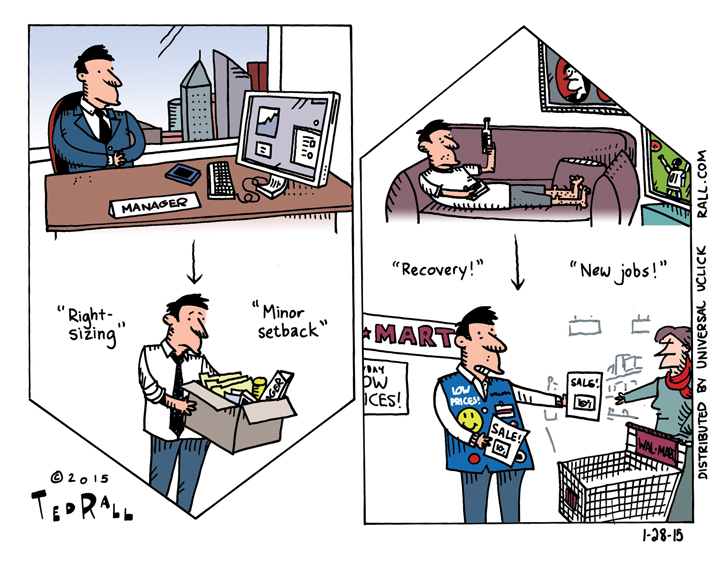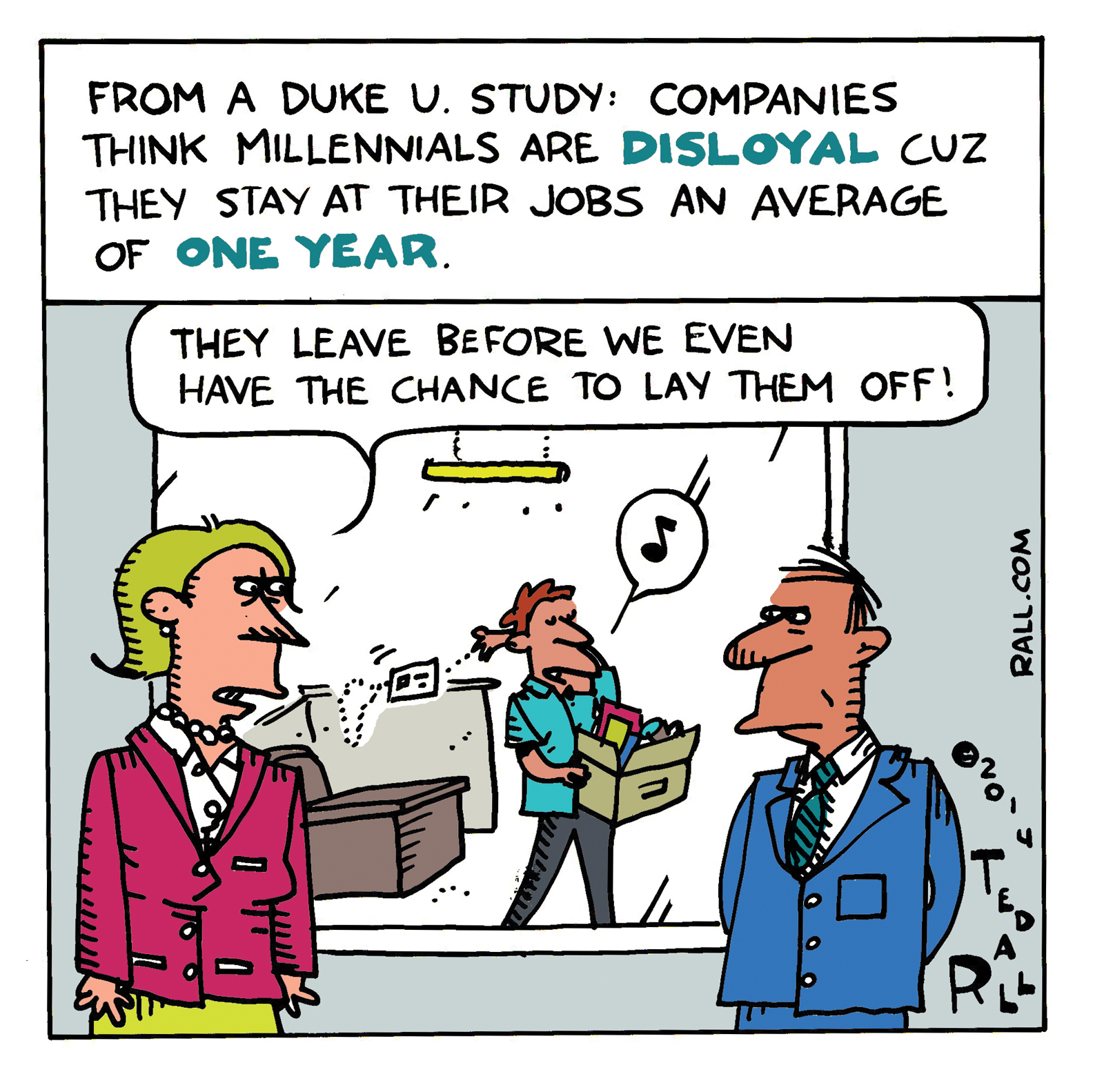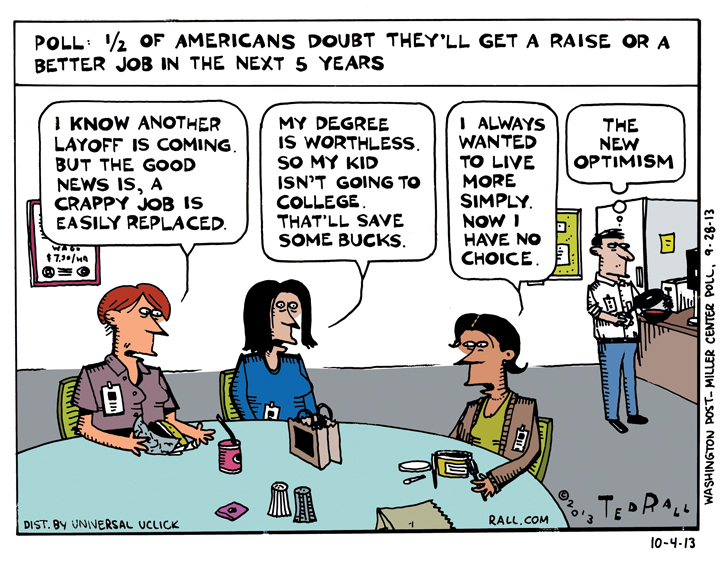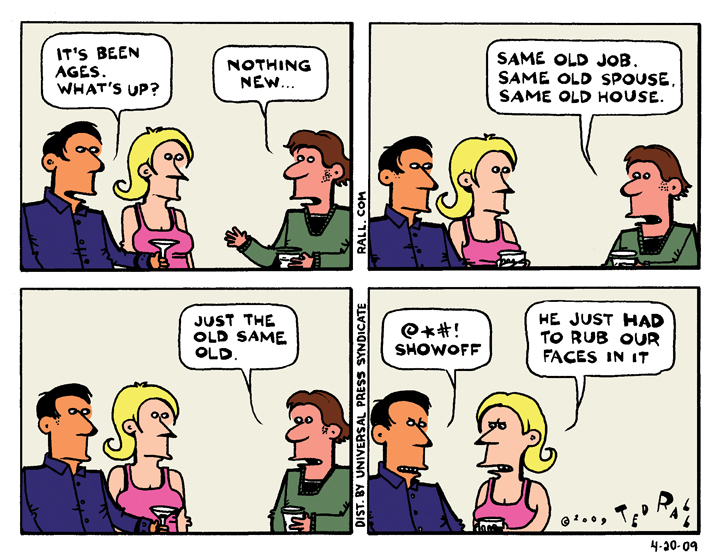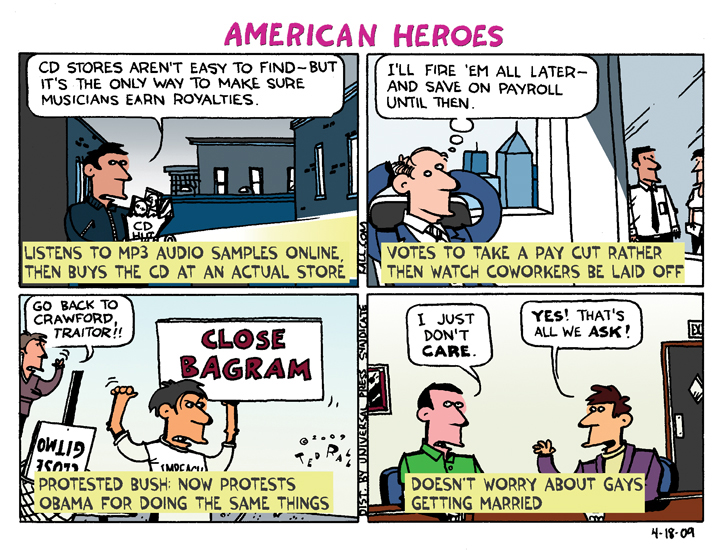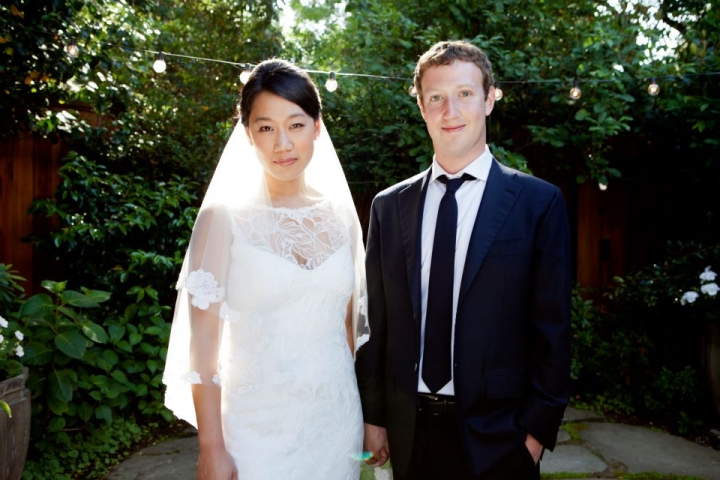 CEO Mark Zuckerberg promises to give 99% of his Facebook shares to charity — eventually.
CEO Mark Zuckerberg promises to give 99% of his Facebook shares to charity — eventually.
Exact phrasing: the stock, currently worth $45 billion, will be donated “during [he and his wife’s] lives.” He’s 31 and she’s 30, so actuarial tables being what they are, by approximately the year 2065.
If Facebook or the Internet or the earth still exist.
Whoop de doo.
I would be far more impressed if Facebook would put some money into the American economy. How? By hiring more workers — a lot more workers. Facebook’s market cap is $300 billion — almost ten times more than GM. GM has 216,000 employees. I’m not sure Facebook could find work for 2 million workers — but 12,000 is pathetic. They might start by hiring a few thousand 24-7 customer service reps so they could respond quickly when some antisocial pig posts your nude photo.
The part of the “ain’t Zuck nice” philanthropist suck-uppery that really has me annoyed is the “charity” bit.
Disclosure: I’m on record as being not at all into charity. If something is important enough to require funding — helping hurricane victims, sending doctors to war zones, poetry — it ought to be paid for by society as a whole, out of our taxes. We shouldn’t allow billionaires to aggregate enough wealth to billionaires in the first place. Partly, this is because it’s unfair. No one can work hard enough to earn one billion dollars. Also because it gives too much control to individuals at the expense of the 99.99% of everyone else.
Unfortunately, we await the revolution. So we still have billionaires running around pretending to be nice (as opposed to where they belong, hanging from a lamppost).
Even by our current dismal standards, however, Zuck is full of crap.
Point one: the Chan Zuckerberg Initiative is not a charity. It’s a limited liability corporation (LLC) that, like any other company, can donate to actual charities but can also invest in for-profit companies.
Point two: this is all about control.
A donation to an independent, classic 501(c) charity can come with strings attached — the money is only for a children’s wing of the hospital, no adults — but it’s ultimately spent by the charity based on its directors’ decisions. Under the LLC structure Zuckerberg will maintain nearly dictatorial control over the funds he’s “donating” to “charity.”
It’s the difference between you giving a hundred bucks to the United Way, and taking a hundred bucks out of your wallet and dropping into a coffee can in your kitchen. Maybe the C-spot in the coffee can will go to the poor. Maybe not. It certainly isn’t accurate to claim you gave it to charity.
If Zuck wants a “gives 99% of his stock to charity” headline, he ought to earn it — by giving 99% of his stock to actual charities. Charities that aren’t named after him. Charities he doesn’t control.
“Zuckerberg To Maybe Eventually Do Things He Deems Good With Some Of His Fortune” would be more accurate.
The vagueness of the Zuckerbergs’ announcement highlights how little anyone should be impressed. “Our initial areas of focus will be personalized learning, curing disease, connecting people and building strong communities,” they said.
Sound familiar?
The Bill and Melinda Gates Foundation was founded in 2000 with billions of dollars Microsoft extracted from American consumers via price gouging and gangster-style monopolistic tactics so ugly the feds almost broke up the company. The charity’s (it’s charted as a 501(c)) mission sounds remarkably similar to those of the Chan Zuckerberg Initiative: “Our foundation is teaming up with partners around the world to take on some tough challenges: extreme poverty and poor health in developing countries, and the failures of America’s education system.”
Which, right out of the gate, meant donating PCs to schools so that fewer kids would grow up using Macs.
If you’re a conservative who thinks government can’t do anything right, let me show you a charity that’s worse. The Gates Foundation wants to destroy teachers’ unions to take away their benefits and drive down their wages — hardly a way to attract the best and brightest young college graduates into the profession. And it has poured millions into the disastrous Common Core, which has created today’s “teach to the test” culture in public schools. Given Zuckerberg’s previous involvement in public schools, a $100 million fiasco in Newark, New Jersey that declared war on teachers, fetishized standardized testing and led to so many school closures that kids wound up walking miles through gang territory to new schools chosen for them by, really, an algorithm — it isn’t a stretch to guess that Chan Zuckerberg will look a lot like Bill and Melinda Gates.
I wouldn’t expect much — much good, anyway — from Zuckerberg on the poverty front, either. After all, Facebook is spreading poverty among American STEM workers by pushing Congress for more H1C visas for foreign workers hired by big tech companies to replace better-paid Americans. Odds are that, here too, the Chan Zuckerberg Initiative’s approach will be similar to the Gateses.
Too young and too rich to have a clue — and the only people they know are over-privileged corporate pigs. How do you think this will turn out?
In 2010, for example, Bill and Melinda drew fire for subsidizing African projects by agribusiness conglomerates Cargill and Monsanto, both notorious for crushing small farmers, to the tune of $23 million. They’re way into sketchy genetically-modified foods. They wind up propping up authoritarian and dictatorial political regimes by focusing on technocratic short-term “quick fix” projects that don’t address the underlying causes of poverty (psst — capitalism). It’s a safe bet Zuck’s anti-poverty stuff will make more people poorer.
It’s Zuckerberg’s billions. He can do what he wants with his money. But let’s not make the mistake of calling him a charitable giver, much less a great guy.
(Ted Rall, syndicated writer and the cartoonist for ANewDomain.net, is the author of the new book “Snowden,” the biography of the NSA whistleblower. Want to support independent journalism? You can subscribe to Ted Rall at Beacon.)
COPYRIGHT 2015 TED RALL, DISTRIBUTED BY CREATORS.COM

 Freelancers earn less than full-timers. They work longer hours. They’re less economically secure. Because they can’t afford to say no when a possible client calls, their time isn’t their own, even on weekends and holidays. Speaking of which: what holidays?
Freelancers earn less than full-timers. They work longer hours. They’re less economically secure. Because they can’t afford to say no when a possible client calls, their time isn’t their own, even on weekends and holidays. Speaking of which: what holidays?